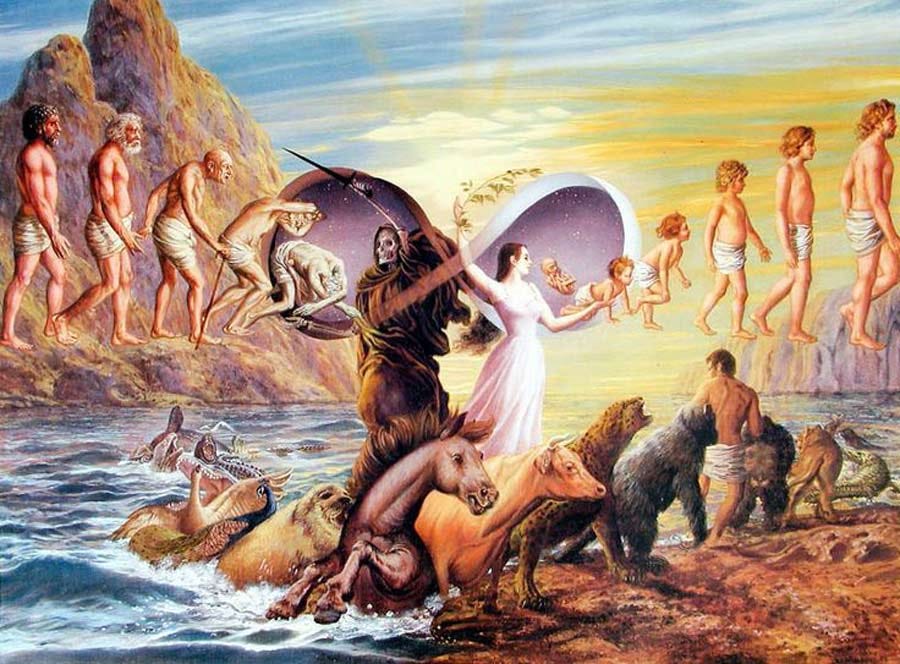
Reincarnation is a concept prevalent in many Eastern religions, such as Hinduism and Buddhism, as well as many Greco-Roman religious/philosophial systems. It proposes that after death, a person’s soul is reborn into a new body to live another life. This idea of cyclical rebirth from one lifetime to the next is not taught in the Bible. In fact, reincarnation is actually expressly denounced in the Bible.
The Finality of Death
The Bible teaches that death is final and that we face judgment after we die:
“It is appointed unto men once to die, but after this the judgment.” (Hebrews 9:27)
This verse clearly refutes the idea of reincarnation, as it asserts that we die only once and that there is no opportunity for a second life here on earth. Instead, if we are saved, we will be resurrected into glorified bodies and dwell in the new heavens and the new earth (Revelation 21, 22), but not in another body in this earthly existence. When we die, we face judgment and our eternal destiny after our earthly life.
The Promise of Eternal Life
Jesus spoke of the promise of eternal life for believers, assuring them that they would be with Him in paradise:
“Jesus answered him, ‘Truly I tell you, today you will be with Me in paradise'” (Luke 23:43).
This statement from Jesus to the criminal on the cross further refutes the idea of reincarnation. Jesus did not promise the criminal another chance at life on earth to absolve himself of his bad karma and earn some better karma, but instead, He assured him of his eternal destination in paradise with Christ Himself.
The Distinct Identity of Individuals
The Bible affirms the distinct and unchanging identity of individuals even after death. For example, during the Transfiguration, Moses and Elijah appeared alongside Jesus:
“As He prayed, the appearance of His face was altered, and His robe became white and glistening. And behold, two men talked with Him, who were Moses and Elijah” (Luke 9:29-30)
This passage demonstrates that Moses and Elijah retained their identities even after their earthly lives, negating the idea that they could have been reincarnated as other people or beings. Moses also could not have reached the state of “nirvana” or “moksha” that Buddhism and Hinduism claim breaks you out of the cycle of reincarnation because Moses never even ascribed to the beliefs of those religious systems.
Not only that, but in the story of the rich man and Lazarus that Christ spoke in Luke 16:19-31, both the rich man, Lazarus, and Abraham were in a new place in the same bodies with the same identities, not able to return to the earthly place they were before, nor able to cross from one side that involved torment, and the other side which did not because of the ‘great chasm’ that was fixed between them.
The True Identity of John the Baptist
Some people who believe in reincarnation point to Matthew 17:10-12 as evidence for their belief, claiming that Jesus identified John the Baptist as the reincarnation of Elijah. However, this interpretation is incorrect. Jesus referred to John the Baptist as the one who came in the “spirit and power of Elijah” (Luke 1:17), meaning that John’s ministry was similar to Elijah’s, not that John was literally Elijah in a new body.
Furthermore, when John the Baptist was point blank asked if he was Elijah, he denied it (John 1:21). Even more, Elijah actually never died (2 Kings 2) so in that sense, there is no way he could have reincarnated.
Conclusion
Reincarnation is a concept entirely absent from the teachings of the Bible. The Scripture emphasizes the finality of death, the promise of eternal life for believers, and the distinct identity of individuals, all of which contradict the doctrine of reincarnation. As followers of Christ, it is essential to understand the biblical perspective on life after death and to reject ideas that are not grounded in Scripture. By doing so, we can deepen our faith, build our foundation on the Rock which is Christ, and grow in our understanding of the truth.
